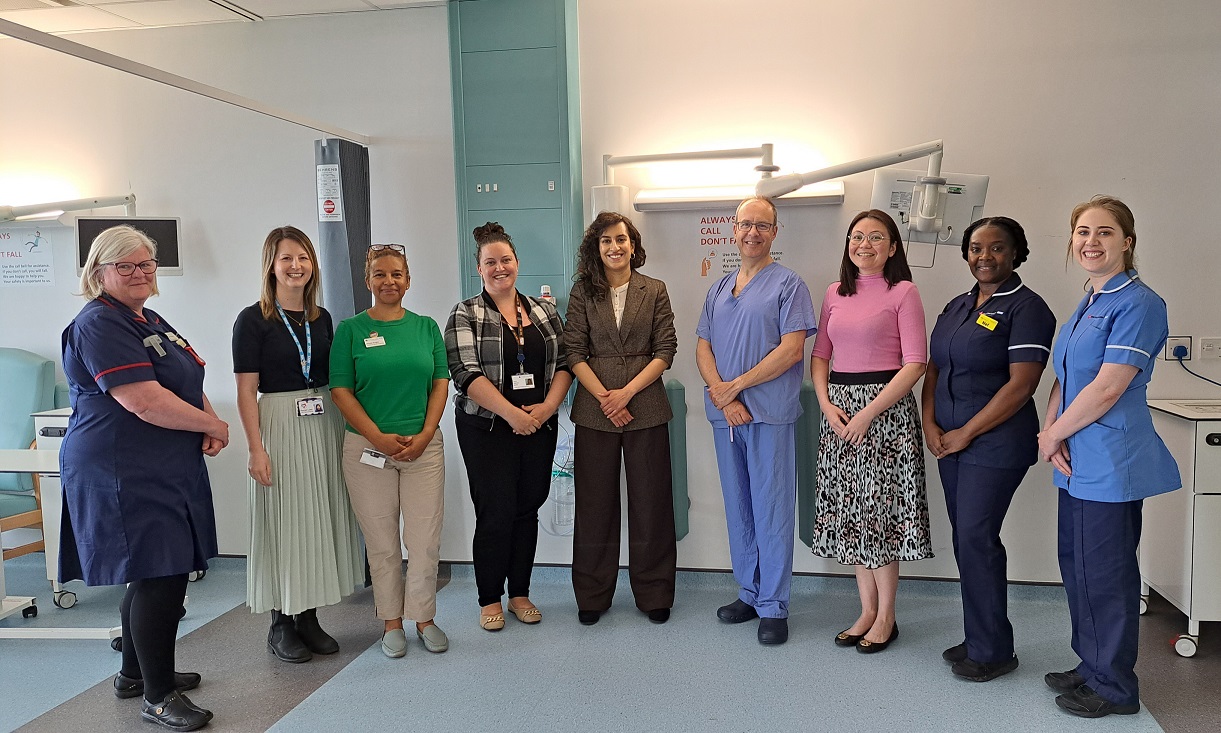
Patients having a hip or knee replacement at Chase Farm Hospital are going home sooner and recovering more quickly thanks to a collaborative project involving staff across the service.
Supported by the trust’s clinical practice group programme, staff, including surgeons, anaesthetists, therapists, ward nurses, and advanced nurse practitioners worked together to reduce the number of days patients remain in hospital following their surgery.
Going home sooner provides a number of benefits to patients and aids their recovery.
Advanced nurse practitioner Ursula Knight said: “Being at home means patients are less likely to develop wound complications, more likely to be moving about more frequently and this reduces the risks associated with immobility such as deep vein thrombosis and pressure sores so the sooner they get home, the better.”
Between January and May last year, patients would stay an average of 4.8 days in bed following their hip replacement surgery, and 4.5 days following their knee replacement surgery. This year, however, the average has dropped to just 2.9 days for hip patients and 3.2 days for knee patients, thanks to a huge team effort.
As well as boosting patient recovery, this reduction in length of stay also benefits the hospital because it frees up ward beds for other patients.
This project has been a collaboration between all the staff who help care for a patient needing a hip or knee replacement. Much of the work has been about setting expectations for patients so they are prepared for what their stay in hospital will involve.
Clinical practice group programme manager Rachel Luker said: “The specialist nursing and therapy teams have reintroduced joint school – which is a patient education session so they understand more about their procedure and what they should expect. During the pandemic joint school became an online session and it meant that patients weren’t perhaps as engaged as they could have been. The team has now reinstated it as a face to face session so the patients are really engaged and invested in what will happen to them and what they need to do to enable a quick recovery.”
Clinical lead therapist Deborah Brown added: "We tell patients that the aim is to be out of bed on the same day as their surgery and that it can help with the recovery process. Preparing patients for what to expect following the operation helps to reduce some of their concerns and fears and gives patients the confidence to get back on their feet sooner"
The therapy team has also extended their support for an additional two hours each day and so patients are more likely to receive physio the same day as their operation. In addition, nurses on the ward have been trained to mobilise the patients. Ward manager Nef Duncan added “This means that even if physiotherapy is not available, the nurses can help get patients on their feet – a crucial factor in getting patients home sooner.”
In 2022 there was an average time of 16 hours before a patient was on their feet post surgery – that’s now been cut to 8.9 hours.
Orthopaedic surgeon Simon Mellor said: “We’ve made lots of little changes which, taken as a whole, can have a significant impact on a patient’s length of stay. For example, we are no longer using drains, which can impede a patient’s ability to move around following their surgery. We are also using medication to reduce blood loss which means a speedier recovery.”
The team are continuing to test ideas to support patients to get home sooner, such as day case joint replacement and offering rapid therapy follow-up.
 Translate
Translate